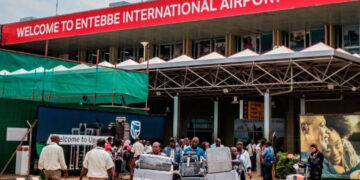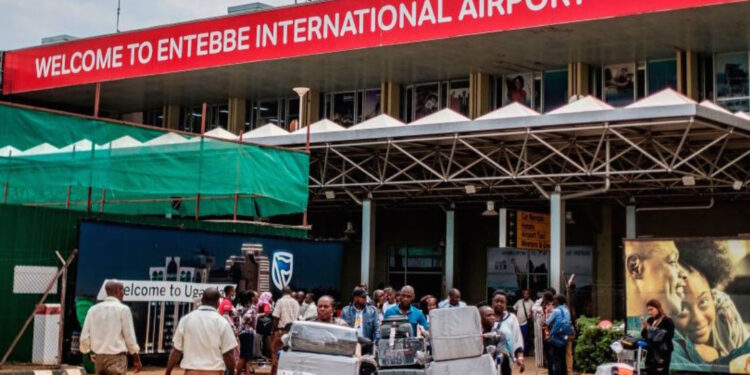By Emmanuel Nduka
China is set to take over Uganda’s major airport over failure to repay a loan facility, Daily Trust reports.
The Ugandan Government has failed to reverse a loan agreement with the Chinese which had repayment conditions of attaching its only airport as collateral.
The Entebbe International Airport and other Ugandan assets were attached and agreed to be taken over by Chinese lenders upon arbitration of the loan.
According reports, President Yoweri Museveni had sent a delegation to Beijing hoping to renegotiate the toxic clauses, but the visit was largely unsuccessful, as China authorities refused to allow any alteration in the original terms of the deal.
The Uganda Government represented by its Finance Ministry and the Civil Aviation Authority at the time, had on November 17, 2015, signed an agreement with Export-Import Bank of China (Exim Bank) to borrow U$207 million at two per cent upon disbursement; with a maturity period of 20 years including a seven-year grace period.
The deal signed with the Chinese lenders virtually means Uganda “surrendered” its most prominent airport to China.
The Uganda Civil Aviation Authority (UCAA) said some provisions in the Financing Agreement expose Entebbe International Airport and other Ugandan assets to be attached and taken over by Chinese lenders upon arbitration in Beijing.
Thus, the rejection of Uganda’s plea to renegotiate the toxic clauses of the 2015 loan has left Museveni’s administration in limbo.
According to the Daily Monitor of Uganda, the Ugandan Government waived international immunity in the agreements it signed to secure the loans, exposing Entebbe International Airport to take over without international protection.
Recently, Uganda’s Finance Minister Matia Kasaija apologised to Parliament for the “mishandling of the $207 million loan” from the China Exim Bank to expand Entebbe International Airport.
“I apologise that we shouldn’t have accepted some of the clauses,” Kasaija told members of the committee in response to questions asked by the legislators.
There were also questions over the interest rate that was set by the China Exim Bank for the funds placed in an off-shore Standard Bank account that was used as collateral for the project.

































